The Big Punting Survey: revealing racing's 'Radio 4 problem'
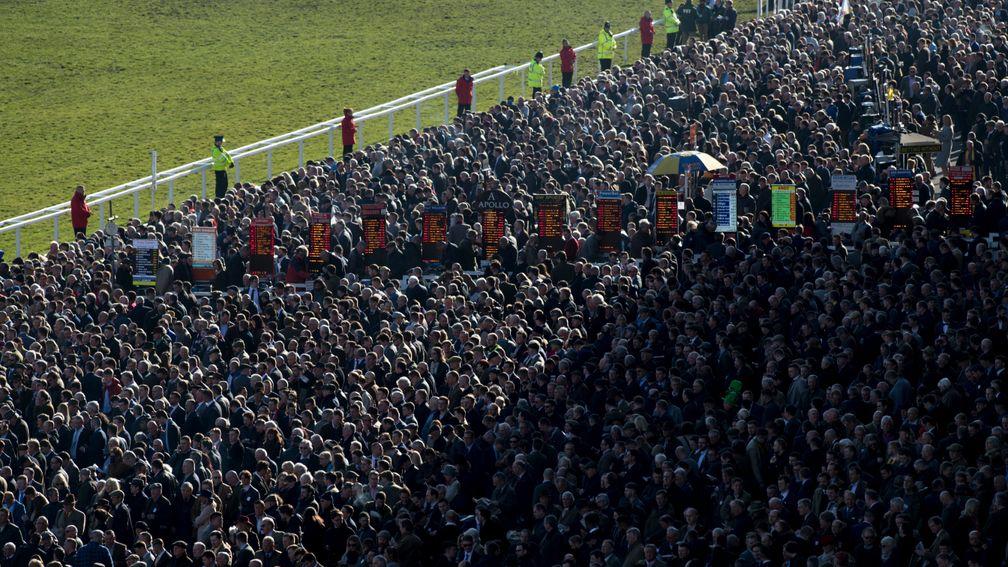
The Big Punting Survey part one: one in six have already been hit with affordability checks
When I turned 50 recently, a so-called friend was kind enough to send me one of those hilarious birthday cards bearing the words: 'Older, wiser, sexier'. According to that kind of thinking, horseracing must have an extremely sexy audience, perhaps the sexiest of any British sport, as our Big Punting Survey reveals the typical racing fan has even more life experience than me.
More than 10,000 of you took part, over a third of whom gave their age as between 55 and 64, making that the most popular of our age categories. Adding in the two older age groups, which were also popular, it turns out that 73 per cent of those who completed the survey were 55 or above, compared with 1.44 per cent who can be regarded as newbies, being 25 or younger.
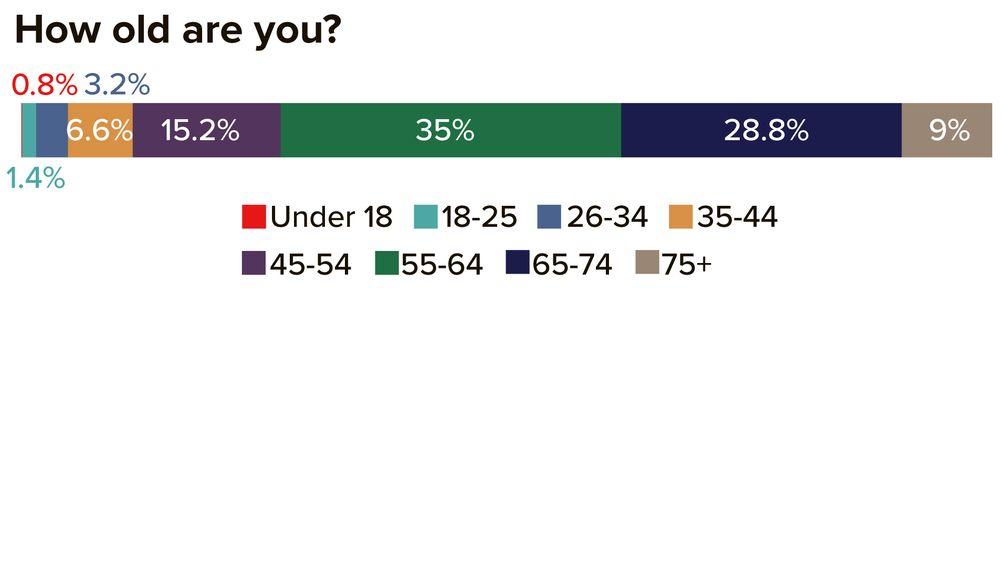
Some of you have evidently made wise investments over the years and are able to relax and enjoy the fruits of those, as 43 per cent described themselves as retired, a six per cent bigger group than the cohort of over-65s. Those in full-time work made up 42 per cent while only one per cent said they were looking for work.
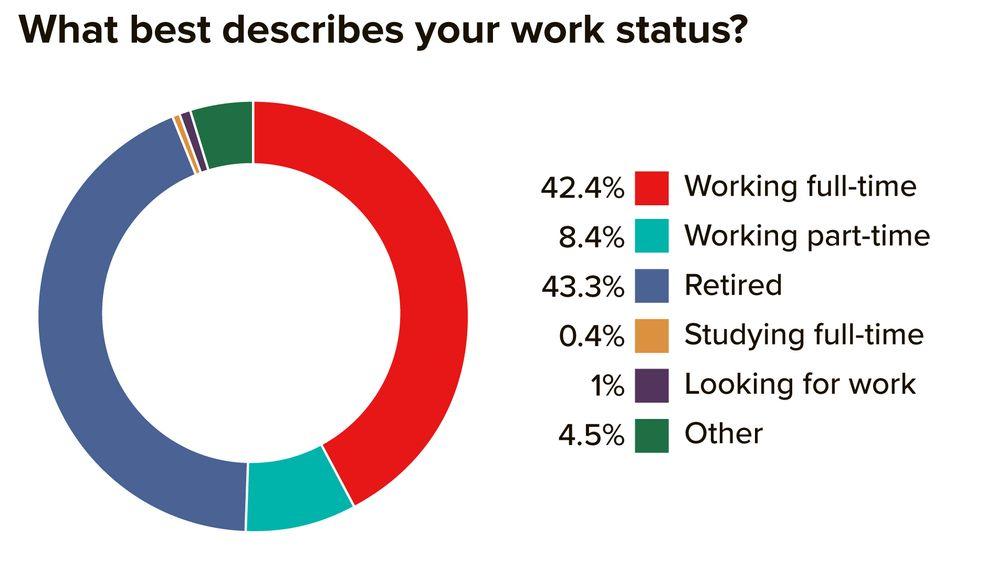
How best to react to these insights? The instinct of some officials will be to worry about why we don't have a younger audience because youth is one of those things that makes an industry fashionable. But horseracing has always had an older audience so perhaps it would be healthier to just relax and accept that reality. There are, after all, reasons why it might usually work out that way.
"This is why this sort of research is important to do over time," says Simon Clare, PR director at Ladbrokes Coral and a longstanding lover of the sport. "Because it could just be that's the way it always is, that people in their life-cycle are more likely to really commit and love racing in a passionate way as they get older.
"Even if, at a younger age, you dip in and out, you're still time-poor, you're doing other stuff, your career is more important, you're socialising more. Actually, racing happens to have a really good fit with people who may be slowing down, lifestyle-wise, their kids are grown up, the job's not so important, they have more money."
Free time appears to be an important factor if a racing fan is to make the most of their hobby, with 23 per cent of you spending two hours or more every day thinking about the game, whether that means watching racing, reading about it or selecting bets. Another third of our respondents said they spend at least half an hour on an average day doing those things. For those with a full-time job, that leaves little time for anything else.
Still, there are grounds for concern in the view of Rod Street, chief executive of Great British Racing, the sport's official marketing and promotional body. "At some point in the mid-to-late 1980s, racing was in a position where it had very little competition from other betting products," he says, recalling a time when shop betting on horses and greyhounds dominated the landscape.
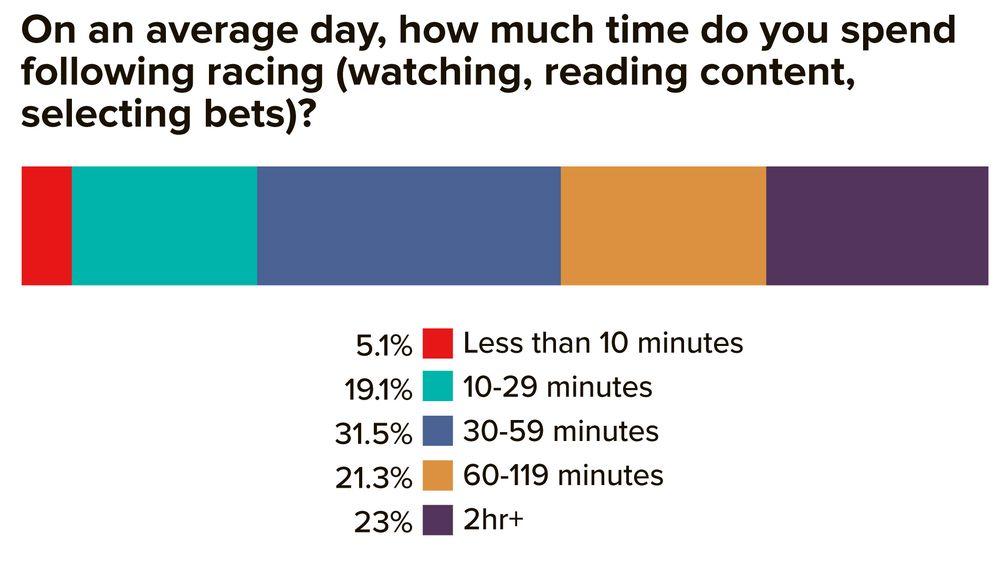
"If you had a desire to have a flutter at any level, racing was your education. Today, if you're a young person with an interest in having a flutter, it is highly likely that your first bet is going to be on something else. And it's football, isn't it?
"Racing has done very well over the ensuing decades, through a rise in betting volumes. We know that betting in general has increased exponentially over the last 40 years or so, but that's disguised a drastic loss of market share of consumers.
"So it's a challenge that this data throws up, to me and I think for the sport: how do we attract people when they are not likely to come through in the volumes that they used to in the 1970s and the 1980s and even the early 1990s?"
Support for Street's point can be found in the answer to the question, 'How long have you followed racing?'. For 86 per cent, the answer was more than 20 years while only two per cent of you have joined the party within the last five years.
Racing can afford to be philosophical about this to some extent, according to Professor David Forrest of the University of Liverpool, who has spent a lot of time studying gambling habits. "Older people go for high stakes," he says. "They're actually much better customers than the young, who don't [bet] as regularly and don't spend very much."
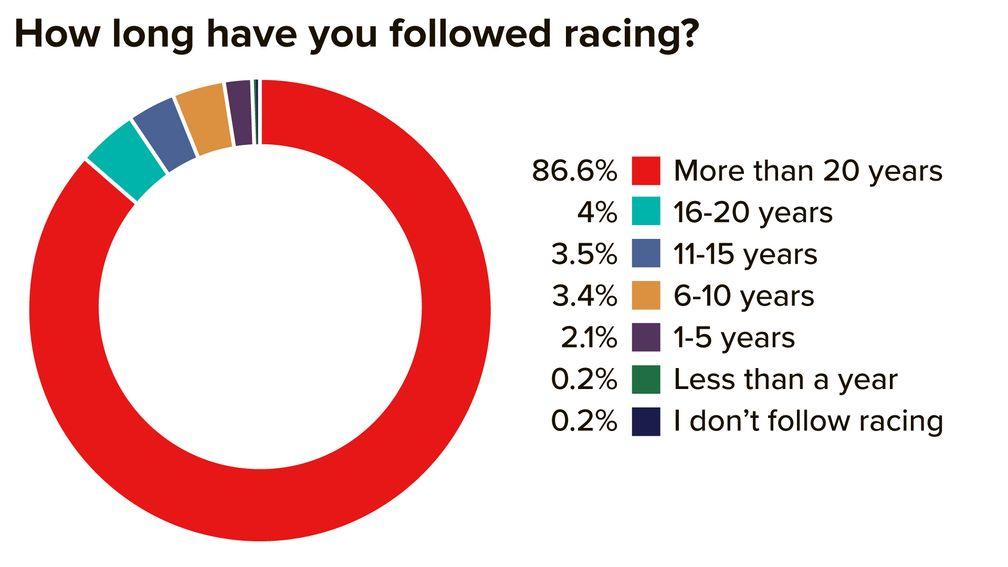
Like Clare, Forrest can see value in doing the same survey at regular intervals to see how the picture changes and whether racing is indeed able to recruit new fans at the rate necessary to sustain its support.
"I call it the Radio 4 problem," he says. "It's always been the case that the Radio 4 audience has been old. But over the years, it's always succeeded in replacing the old folk. Listening to Radio 4 appears to be a life-cycle issue. Every generation is the same. When they get old, they switch to Radio 4.
"But there's always the risk that this won't continue. The media landscape has changed so much that maybe the current 50-year-olds won't suddenly switch to Radio 4. Maybe they'll find other things. That's the BBC's worry and it's similar to racing's worry."
On the other hand, Forrest acknowledges evidence that racing's audience is firmly attached to the game, noting in particular the 23 per cent who spend two hours per day on it. "This points to a strong group of supporters of race betting for whom it is an absorbing hobby.
"Academic research has likened the hobby as akin to solving crossword puzzles. The concern is whether the challenge of tackling the complex puzzle presented by a horseracing card will appeal to a succeeding generation, compared with the more straightforward problem of assessing two teams in a football match."
Just over a third of you completed some form of higher education, according to our survey, which might seem a shade low, now that 40 per cent of the UK's 18-year-old population starts a full-time undergraduate course each year. But Forrest points out that those in the sample would mostly have left school more than 30 years ago, before participation levels in higher education passed 15 per cent.
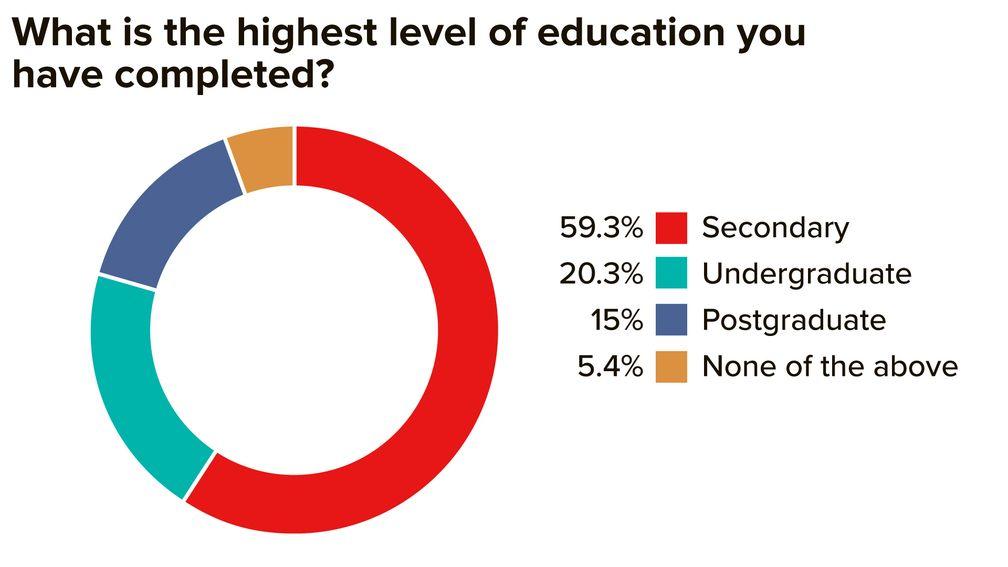
"There is definitely no sign of this being a relatively low education group and every sign that it's got a decent level of education," he says.
How often do you bet? Multiple times per week, said 38 per cent, while 20 per cent get involved every day. But stakes are restrained, £10 being standard for 27 per cent while a similar number bet in fivers for the most part. Just over two per cent are shovelling on £250 or more on a regular basis, although almost five per cent of you were too coy to answer.
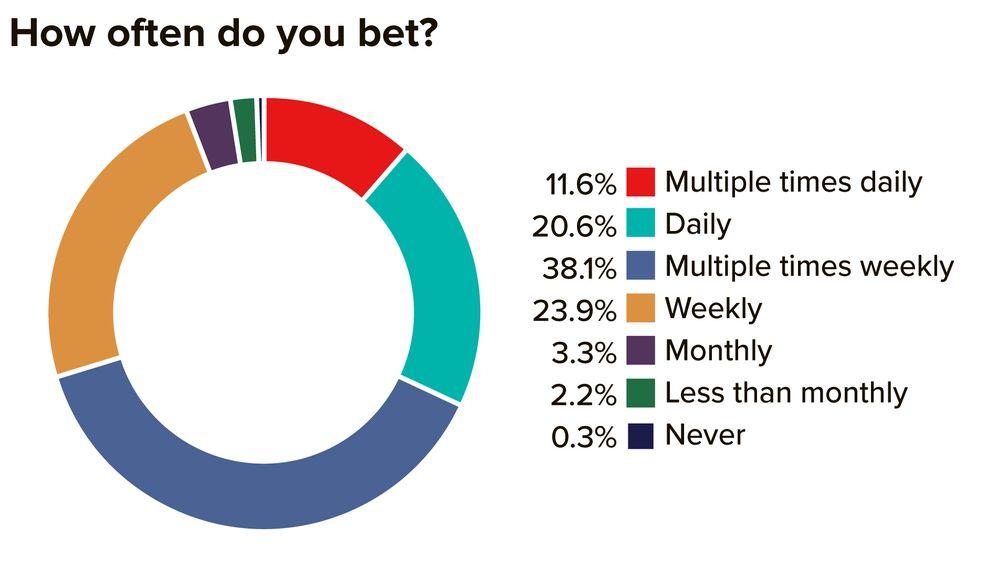
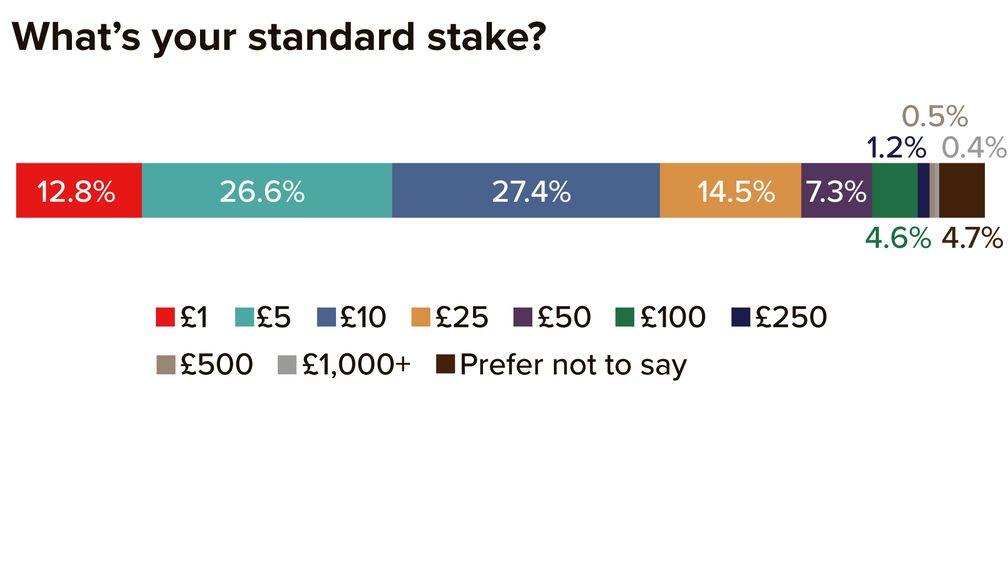
Clare confirms the average stake seen by his business is around a tenner. "It's probably less now because in the last few years we've been pushing to try and grow the recreational base, and a lot of the focus is moving away from large-staking customers, that's the way the regulatory environment is pushing betting.
"It means that operators are really focusing on trying to grow the volume of customers at lower-staking levels. Because of the competitive nature of betting on racing, the myriad of extra value you get now versus what you would have got 20 to 30 years ago, in terms of extra places, best odds guaranteed, money-back offers, it means people get far more fun for their money. Even if they end up losing the same amount in the end as they might have done 20 years ago, it's stretched further, they've had more bets. It's ensuring people get more value for their spend, so they enjoy it more and continue to do it."
More importantly, we asked how you choose which horses to back. Form study is vital to 53 per cent of you, arguably not quite high enough for such a sophisticated readership, while 'Following my gut' came next on a disconcertingly high 9.75 per cent.
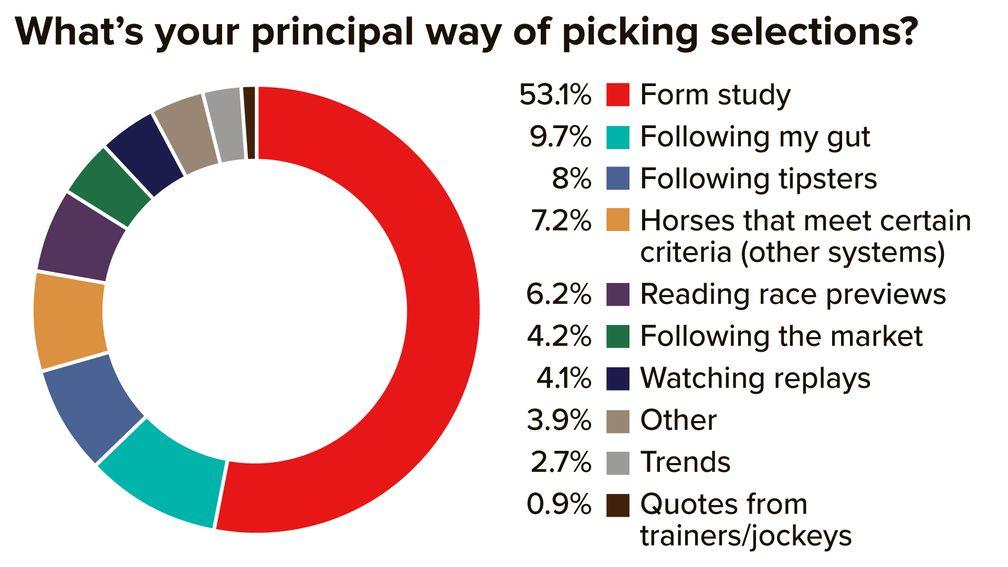
Clare is reassuring on this. "I always felt that in some ways following Desert Orchid was following your gut, because he was giving two stone away to Panto Prince and any form student would say, 'Oh no, he can't do that'. But you could be a passionate racing fan and say, 'No, I'm following my gut here. Dessie's gonna win'.
"I love that because that's where you're almost willing to defy logic for your choice. And actually, if you didn't defy logic, you'd never back big-priced winners."
What can we take away from all this? "The way we engage people now needs to be innovative," says Street, adding that there are regular conversations going on behind the scenes about how to improve fan engagement.
"We need to think about getting children involved. We've done lots with things like 'Under-18s race free', a fantastic and compelling offer. I think we need to do more in that student marketplace.
"And to make it more about the racing and less about the beano, if you like, the social aspect, because you want them to create an affinity with the horse.
"I think we could do more imaginative family offers. Looking at this demographic, it might be less about bringing your kids racing and more about bringing your grandkids racing."
Clare hopes there will be more surveys to build on this one. "Maybe there's more need to understand, at what point did these people over 50 fall in love with racing, because understanding the life-cycle of customers is really important. You can then worry less about turning the 18 to 25-year-olds into passionate fans. We just need to know that we have a relationship with them in some way from the age of 18 to 30 because that relationship will be like a seed which can then flower."
He reports a pleasingly high level of engagement in the Coral Racing Club, intended as a focus for the passion of the firm's customers. Clare looks at the popularity of puzzles like Wordle and Sudoku and wonders why the puzzle of racing should not also be widely adopted, especially among retirees.
"Those are contrived things to create challenges, mental stimulation. Racing is there every day, it's real life stuff and full of courage, personalities, dramas and crises. Even with the negatives, which we all focus on, it's still an incredibly colourful sport."
The Big Punting Survey: other key findings
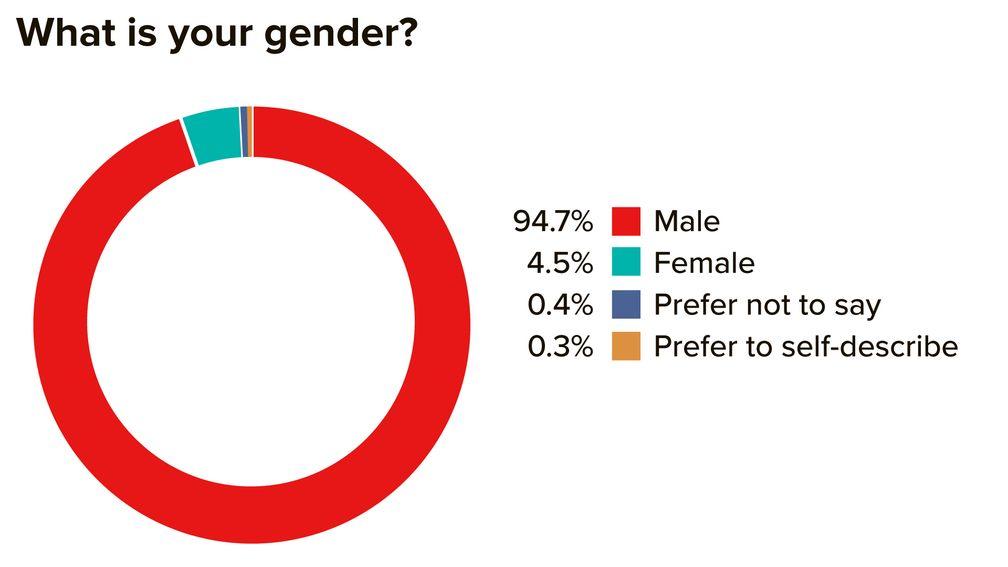
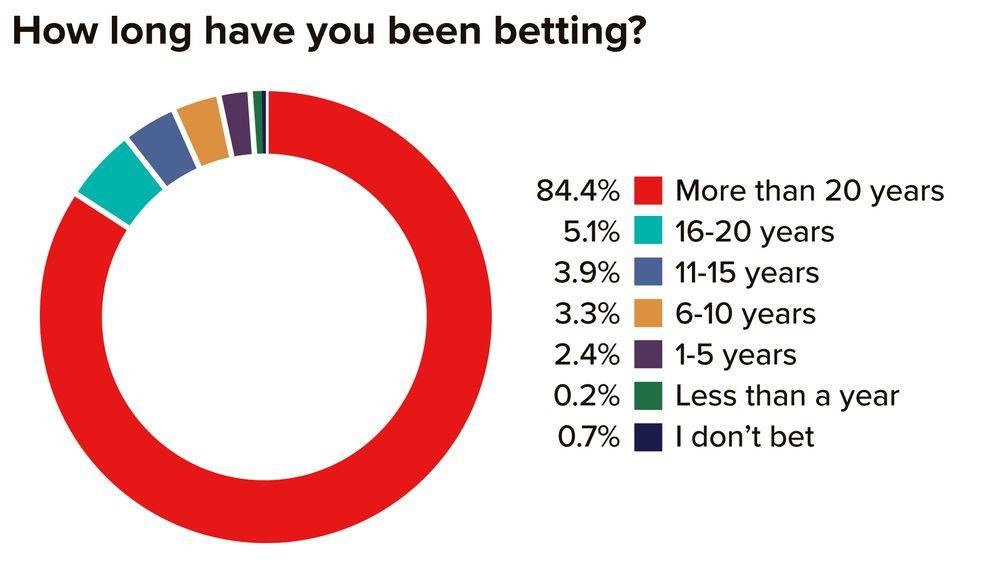
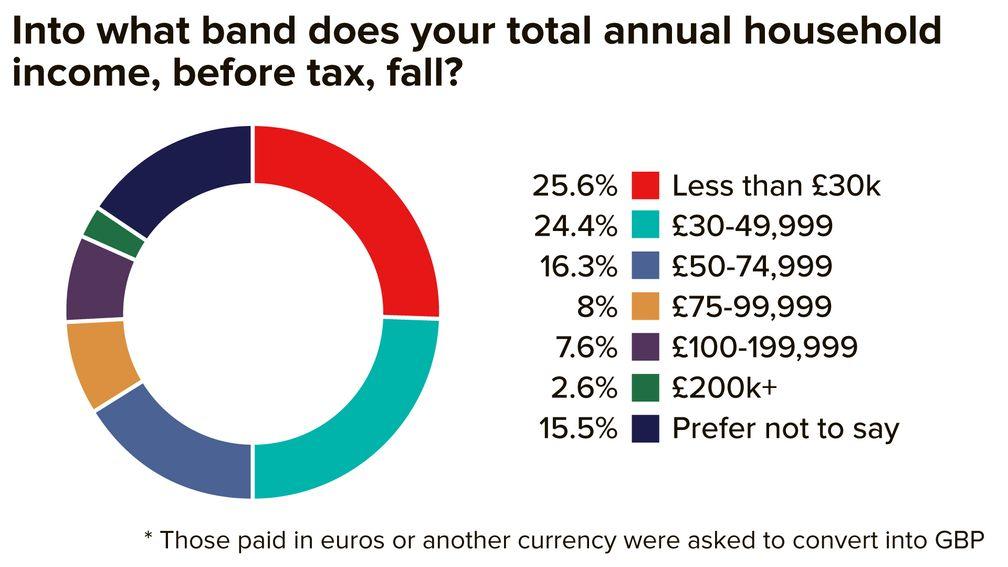
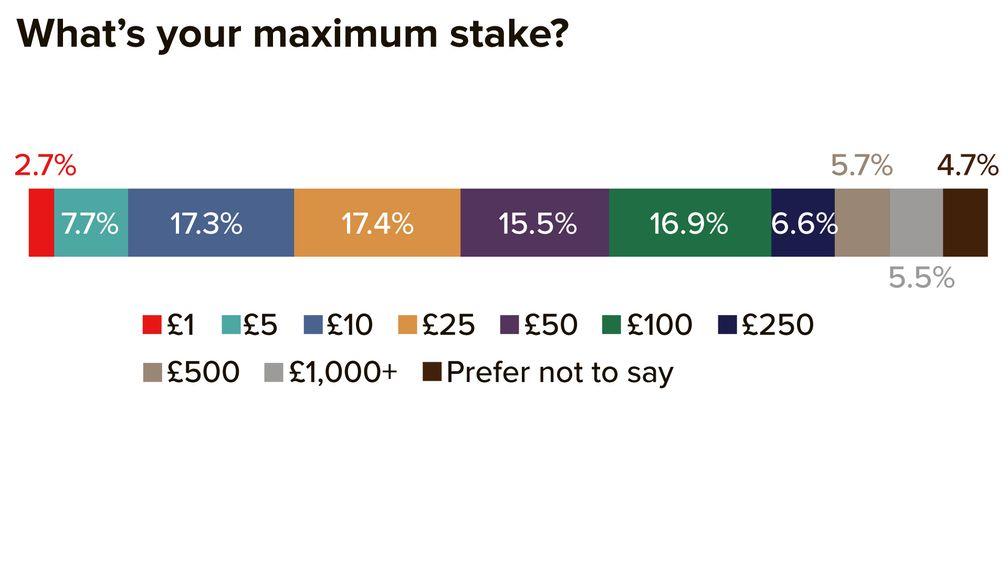
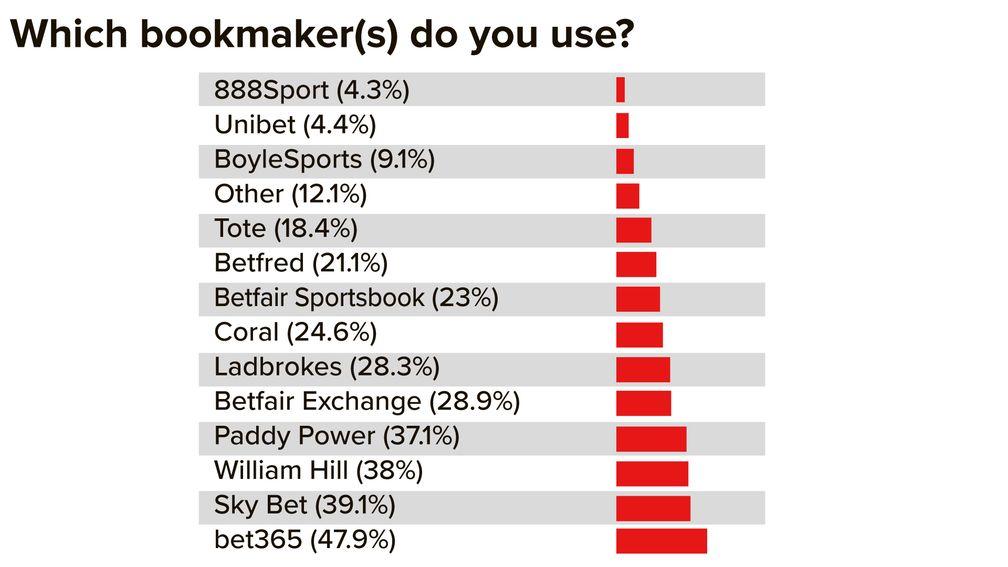
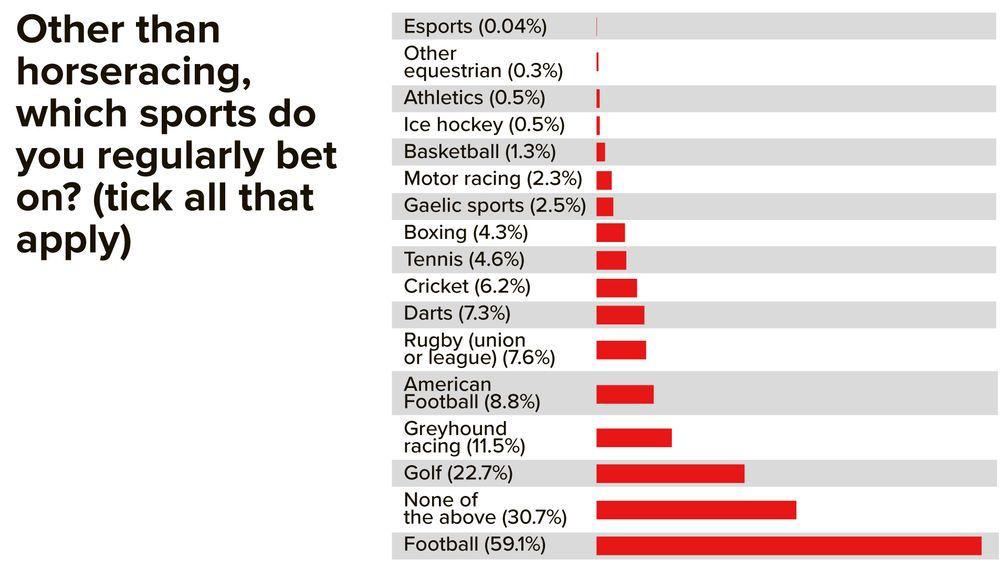
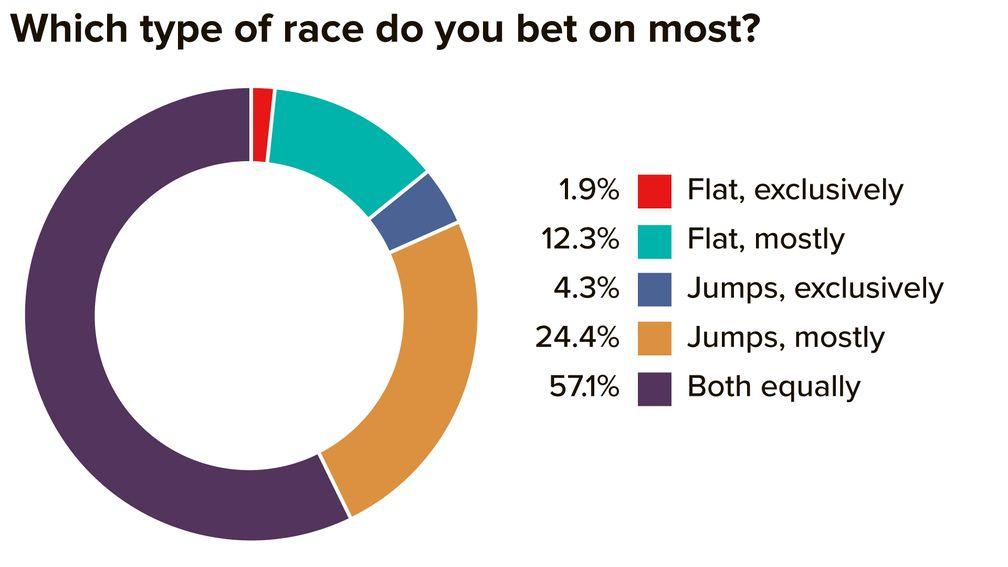
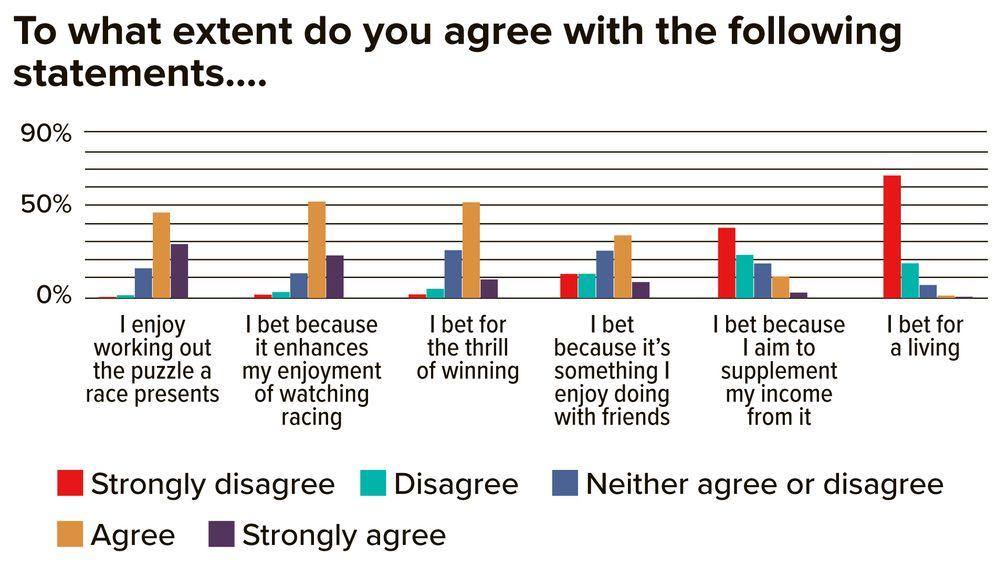
Read these next:
The Big Punting Survey part one: one in six have already been hit with affordability checks
Tom Kerr: out-of-control Gambling Commission is either clueless or treating us with contempt
Gambling Commission denies mandating the affordability checks blighting punters
Festival subscription offer | 50% off three months
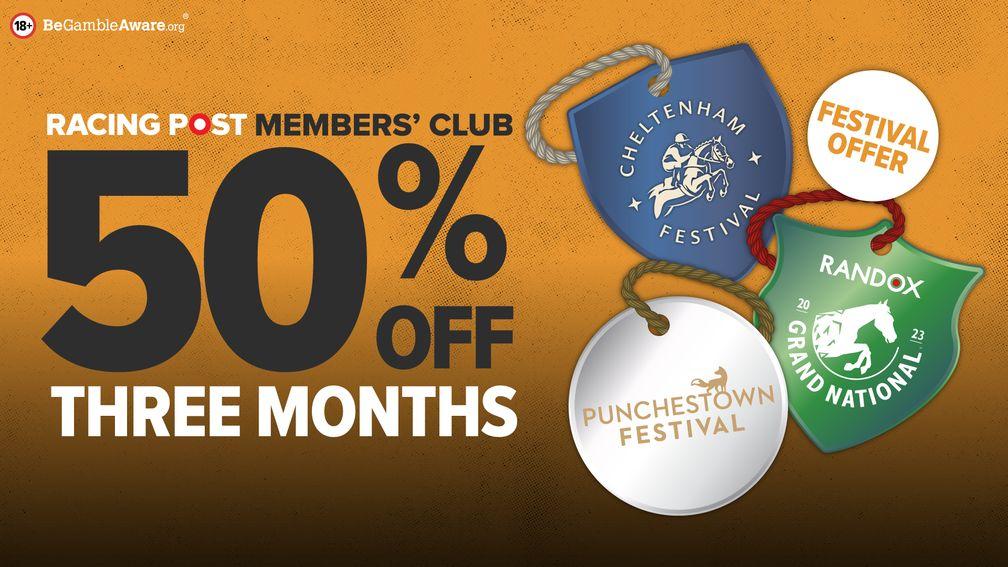
It's festival time – get 50% off for three months! Now is the perfect time to subscribe and lock in 50% off your first three months, so you can take advantage of all the great content we've got coming up. To redeem this offer, head to the checkout and enter the code FESTIVAL23 at the payment screen to unlock your discount*. Subscribe now. Available to new subscribers purchasing Members' Club Ultimate Monthly using code FESTIVAL23. First three payments will be charged at £19.98, subscription renews at full monthly price thereafter. Customers wishing to cancel will need to contact us at least seven days before their subscription is due to renew.
Published on inGambling review
Last updated
- Labour vice-chair of parliamentary racing group calls for 'urgent action to arrest financial decline' of the sport in Britain
- 'It's costing turnover' - restrictions are forcing down online betting says professional gambler Neil Channing
- 'Teetering on the edge' - leading owner says hostility towards racing means punters and owners are falling out of love with the sport
- 'My betting is down by more than 99 per cent' - Royal Ascot-winning owner who turned over up to £1m a day bemoans impact of checks
- Letters: Gambling Commission chief executive Andrew Rhodes responds to British racing's statement
- Labour vice-chair of parliamentary racing group calls for 'urgent action to arrest financial decline' of the sport in Britain
- 'It's costing turnover' - restrictions are forcing down online betting says professional gambler Neil Channing
- 'Teetering on the edge' - leading owner says hostility towards racing means punters and owners are falling out of love with the sport
- 'My betting is down by more than 99 per cent' - Royal Ascot-winning owner who turned over up to £1m a day bemoans impact of checks
- Letters: Gambling Commission chief executive Andrew Rhodes responds to British racing's statement
